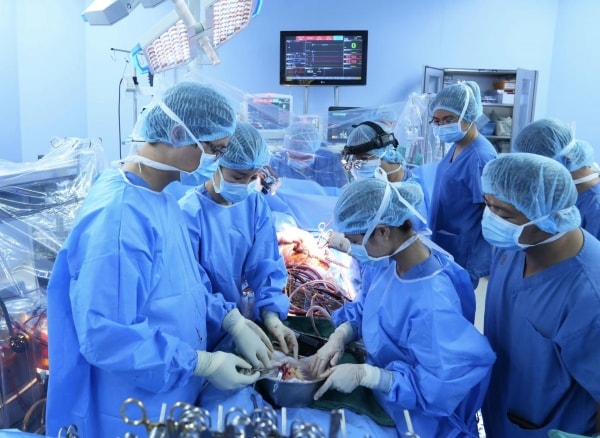In the draft Law amending and supplementing a number of articles of the Law on Donation, Collection and Transplantation of Human Tissues and Organs and Donation and Collection of Cadavers, the Ministry of Health proposes that people aged 16 and over are allowed to donate their tissues while they are alive.

The Ministry of Health is drafting a Law amending and supplementing a number of articles of the Law on Donation, Removal, and Transplantation of Human Tissues and Organs and on Donation and Removal of Cadavers.
In the draft, the Ministry of Health proposed to amend Article 5 on the right to donate human tissues and organs after death as follows: Everyone has the right to donate their tissues and organs after death. In case a person under 18 years of age donates his/her tissues and organs after death, he/she must have the written consent of his/her legal representative.
Regarding the right to donate human tissues and organs while alive: People aged 30 years or older with full civil capacity can donate their body organs while alive to any person waiting for a transplant without naming the recipient.
People aged 18 years or older with full civil capacity may donate their body parts while alive to their parents, children, brothers, sisters, or siblings of the recipient.
People aged 16 years and over can donate their tissues while alive. In case a person under 18 years of age donates tissues while alive, they must have the written consent of their legal representative or legal guardian.
People aged 18 years or older with full civil capacity have the right to donate their bodies after death.
The draft also proposes to add Article 33a on costs of donating and transplanting human tissues and organs after Article 33 of the Law on Donating, Taking and Transplanting Human Tissues and Organs and Donating and Taking Cadavers.
Costs for living donors of human tissues and organs include health examination of the donor, testing of biological parameters of the donor, collection of human tissues and organs, care and health recovery after donation.
Costs for donors of human tissues and organs after death for medical treatment include costs of resuscitation, evaluation of tissue and organ function for donation, and retrieval of donated tissues and organs.
Costs for human tissue and organ transplants include biological parameter testing, tissue and organ transplant, health recovery, regular check-ups and anti-rejection drugs.
In the draft, the Ministry of Health also proposed to add benefits to blood and stem cell donors such as: Priority and free provision of blood equivalent to the amount of donated blood when there is a need to use blood during treatment at state-owned medical examination and treatment facilities.
Employees are entitled to half a working day off after obtaining the employer's consent to donate blood without deduction of salary or counting it as a vacation or holiday according to the provisions of labor law.
Priority access to stem cell sources at stem cell banks when needed. Information provided on blood-borne diseases.
Explained about the blood and stem cell collection process, possible adverse events, and tests that will be performed before and after donating blood and stem cells.
Guaranteed confidentiality of clinical examination and test results; receive advice on abnormalities detected during health examination for blood and stem cell donation; receive instructions on how to take care of your health after donating blood and stem cells.
Receive care, treatment and support for care and treatment costs when unexpected complications occur during and after blood and stem cell donation.
Stem cell donors must be consulted, have a health check-up and undergo necessary tests free of charge before stem cell collection in accordance with the technical procedures approved by the head of the stem cell receiving facility or the Minister of Health. In cases where the conditions for stem cell donation are not met, the medical staff receiving the stem cells must clearly explain the reasons.
According to the draft, stem cell donation can only be performed at medical examination and treatment facilities that have been licensed by the Ministry of Health to perform stem cell transplantation; medical examination and treatment facilities that have not been licensed by the Ministry of Health to perform stem cell transplantation but have a contract with a stem cell bank or a scientific and technological organization conducting stem cell research.
TB (summary)